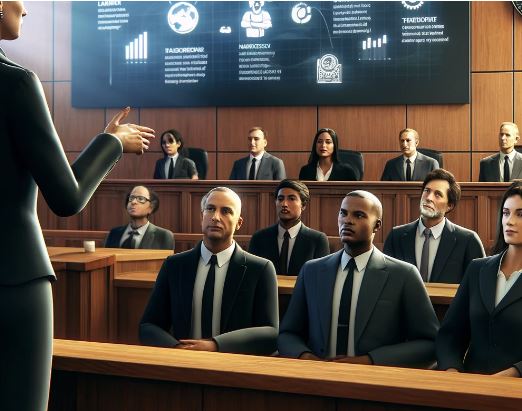


Defending Against Conspiracies Through Storytelling
NOTE: The original title of this article is Defending Against Courtroom Conspiracies Through Storytelling. We took the editorial liberty of removing “Courtroom” from the title of this introduction in the hope that non-attorneys will read this, too.
Introduction by Bruce Hennes, Hennes Communications
In 2024, misinformation continues to be a pervasive force across all sectors of society, affecting decision-making at every level—from individual consumers to high-ranking government officials and senior executives in major corporations. Misinformation thrives in an environment where rapid dissemination of content, often via social media, outpaces traditional fact-checking mechanisms, allowing falsehoods to flourish unchecked. This phenomenon can lead to significant real-world consequences, such as shaping public opinion based on false narratives, influencing elections, or impacting corporate reputations and legal outcomes.
For non-attorneys, government officials, and senior executives, it is crucial to recognize the power of a clear, credible narrative in countering misinformation. The challenge lies not only in disputing false information but also in presenting a compelling alternative that adheres strictly to verified facts. This involves strategic communication, where every message is crafted to reinforce truthfulness and reliability, thereby building trust and credibility with the target audience.
In summation, as misinformation becomes increasingly sophisticated, the need for strong, fact-based narratives becomes more critical than ever. Leaders across all sectors must prioritize transparency and accuracy in their communications. This approach will not only counteract misinformation but also enhance decision-making processes, ensuring that choices are informed by truth rather than falsehood. Effective communication strategies and an emphasis on factual integrity can serve as significant countermeasures against the tide of misinformation, safeguarding public trust and the integrity of democratic and corporate systems.
Here’s the article, written for the National Law Review by David Metz of IMS Legal Strategies…
Defending Against Courtroom Conspiracies Through Storytelling
Misinformation “poses an unprecedented threat in 2024,” according to NBC News. No matter which side of the many social divides someone stands on, they can find a readily available source to support their opinion—and a concerning amount of it is misleading, inaccurate, or outright made-up.
Take for example the “Jeffrey Epstein list.” When newly unsealed court documents from a suit against Epstein associate Ghislaine Maxwell went public in early January, social media users wasted no time posting false claims and images—edited to look just like the real documents—naming such household names as Stephen Hawking, Oprah Winfrey, Tom Hanks, Jimmy Kimmel, and Elon Musk, insinuating these individuals’ connection to sex trafficking charges against Epstein.
Several legitimate, national news sources have confirmed that such names appear nowhere in the actual records from the multiple court cases involving Epstein and Maxwell. But social media’s advantage over traditional media is that it appears in real time, can look convincing (enough), and demands no fact-checking. Traditional journalists—who themselves are not immune to missteps—are left playing catchup to sort out the facts among the noise. But for less discerning eyes, the damage is already done. Another conspiracy fed.
There are countless lessons to be learned from the nature and origins of misinformation. But for our purposes in the legal field, it underscores more than ever the cognitive biases and misrepresentations that a litigant can be up against, and simultaneously, the importance of our best counterstrategy at trial: telling a complete, consistent, and credible story so jurors are not tempted to fill in the blanks themselves.
The Power of Misinformation
In times of fear and uncertainty, it is natural to seek guidance. We search for the most up-to-date information, the newest findings, some semblance of hope, or perhaps more reasons to despair (see: “doomscrolling”). We want the world to make sense—but we also want it to make sense in a way that aligns with our existing beliefs and expectations. The result is that we are prone to seeking out, favoring, and remembering agreeable information while disregarding viewpoints that challenge our beliefs. This tendency is what psychology dubs “confirmation bias.”
For the rest, click here.